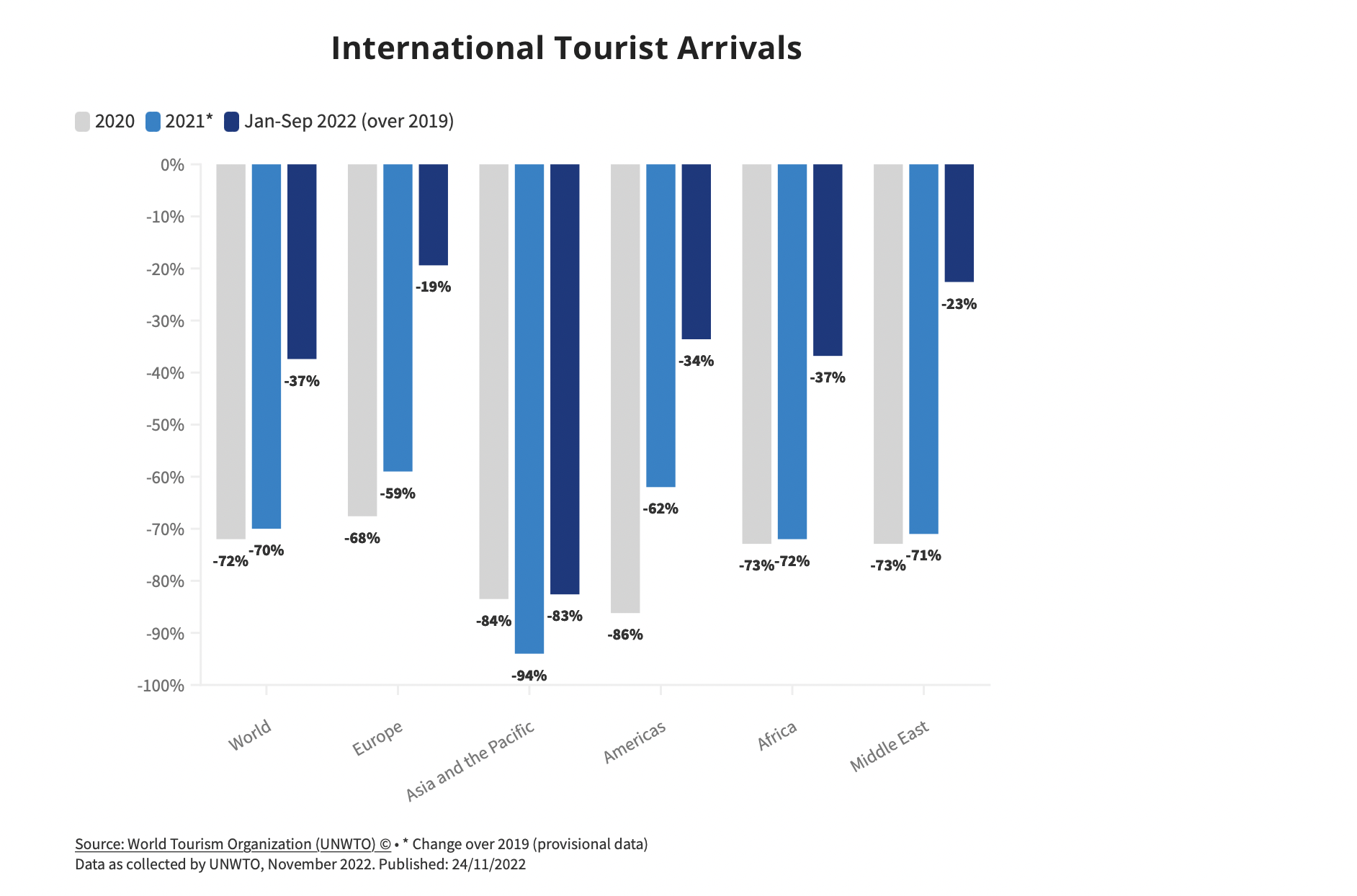3 ways payment technology can help make travel more sustainable

40% of travellers say they are are willing to pay at least 2% more for carbon-neutral flight tickets, but only 14% have actually done so.
Image: Pixabay for Pexels
Stay up to date:
Sustainable Finance and Investment
Listen to the article
- A new report has found that the travel industry needs to develop more compelling products to encourage travellers to make sustainable choices.
- Payment technology can reward customers for choosing sustainable transport.
- It can also help to educate travellers about their impact.
With international tourism now back at 60% of pre-pandemic levels, the need for more sustainability in the sector has never been more important. Whether travelling for work or vacation, travellers and businesses alike are more thoughtful and focused on ways to reduce their carbon footprint and contribute to the environmental health of the planet.
Globally, 40% of travellers say they are willing to pay at least 2% more for carbon-neutral flight tickets, but only 14% have actually done so. How can travel and tourism-related companies help to make journeys more eco-friendly? A new report by the World Economic Forum - How To Create the Sustainable Travel Products Customers Want - has found that the industry needs to develop more compelling sustainable travel products. These should make sure sustainable travel is a more frictionless experience, recognize and reward customers for doing the right thing, and help inform and educate them on sustainability options.
Payments technology can make an impact in the following three ways:
1. Promoting greener aviation
Payments technology can help to promote more sustainable aviation, by rewarding customers for making greener choices. Airlines are working to use alternative fuel as a way of lightening their carbon footprint, with the goal of getting the industry to reach its net-zero emissions commitment by 2050.
The International Air Transport Association projects a 50-fold increase in the production of sustainable aviation fuel by 2025. Carriers like United, with its Eco Skies Alliance, are working with corporations to promote sustainable flying. Even electric-powered aeroplanes are now being tested.
Some airlines are using reward cards to incentivize fliers who make sustainable choices. Etihad Airways, for example, launched its Conscious Choices by Etihad programme, in which members earn rewards for carrying less luggage and delegating miles to approved organizations.
2. Encouraging people to use public transport
Contactless payments can help encourage travellers to use public transport. A recent survey found that 88% of respondents identified sustainability as a factor in how often they decide to travel by public transport, and another 34% said it was the main reason they use it.
The environmental benefits of public transport can really make a difference in aggregate. By tapping a card or smartphone to ride on a bus or subway, consumers are not only saving themselves time but eliminating the need for extra paper or plastic tickets. Contactless payments on transit systems can also reduce emissions since buses and trains idle less when people aren’t fumbling around for cash or trying to determine the fare. A study in Toronto found that buses idled less when riders tapped to pay as opposed to using cash.
3. Educate travellers about their impact
Innovative partnerships in the payments industry are beginning to help educate travellers about the environmental impact of their trips. The Visa Ecobenefits service bundle, for example, allows banks and issuers to add sustainability features to consumer cards. A key feature, underpinned by ecolytiq's sustainability-as-a-service platform, allows cardholders to estimate the carbon impact of their spending. This type of benefit will become increasingly common as travellers push for more opportunities to go green.
How is the World Economic Forum facilitating the transition to clean energy?
By encouraging travellers and other stakeholders to make more sustainable choices, payment tech has a role to play in creating more sustainable destinations, as outlined in the World Economic Forum’s Global Future Council on Sustainable Tourism’s report Ten Principles for Sustainable Destinations. For the travel and tourism industry, the future is green. Businesses can turn to payments tech to improve operations and deliver experiences that fit with the demands of today's more environmentally conscious travellers.
Don't miss any update on this topic
Create a free account and access your personalized content collection with our latest publications and analyses.
License and Republishing
World Economic Forum articles may be republished in accordance with the Creative Commons Attribution-NonCommercial-NoDerivatives 4.0 International Public License, and in accordance with our Terms of Use.
The views expressed in this article are those of the author alone and not the World Economic Forum.
Related topics:
Forum Stories newsletter
Bringing you weekly curated insights and analysis on the global issues that matter.
More on Industries in DepthSee all
Minos Bantourakis and Francesco Venturini
January 21, 2025
Pawan Goenka
January 20, 2025
Maria Alonso
January 19, 2025
Rhiannon Thomas and Katie Thomas
January 13, 2025
David Steinbach
January 6, 2025





